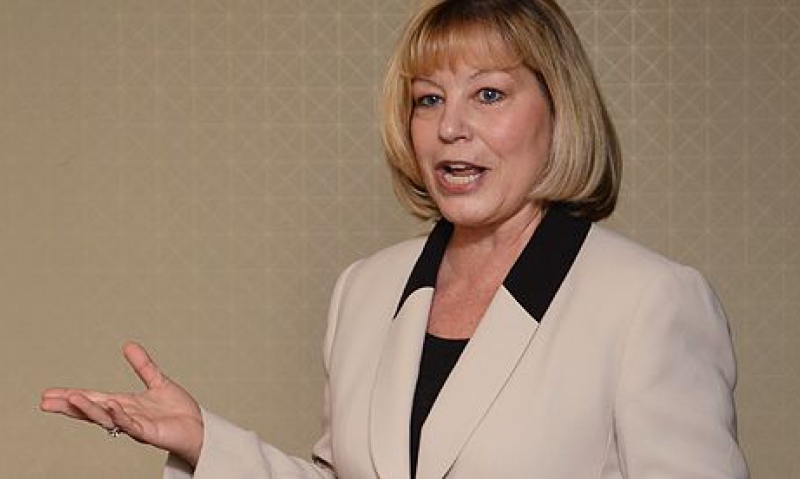
Legion's Economic Commission hears briefing on program designed to place veterans, their families in employment.
Getting a job after leaving the military isn’t an issue that only affects veterans; it affects their families as well. Plenty of scenarios can create financial uncertainty for any military family. A returning veteran could come home and join his or her spouse in unemployment. Or, a spouse could become unemployed because a wounded servicemember needs caretaking.
To help deal with this issue, the Department of Defense has created a program – Hiring Heroes – that is designed to find employment not only for veterans, but also for their husbands, wives or other family members. Members of The American Legion’s Economic Commission were briefed on the program during the 51st annual Washington Conference on March 21.
“Our job is to line up employers and veterans ... or their spouses,” said Karen Hannah, Hiring Heroes program manager. “We reach out to the spouses, family members, their moms or dads, their brothers or sisters. They may have left their jobs in their hometown to come to Walter Reed (Army Medical Center) or Brooke Army Medical Center ... wherever they’re getting their care. Maybe they can get a job, part-time or full-time, while they’re there with their loved ones.”
The Hiring Heroes program coordinates career fairs at various military installations and medical facilities across the country, in places such as Walter Reed, Brooke, Camp Pendleton in California and Madigan Army Medical Center in Fort Lewis, Washington. Thirty eight such career fairs – which feature an even mix of DoD, other federal agencies and private-sector employers – have taken place since 2005.
“We bring these career fairs to (the veterans and servicemembers),” Hannah said. “We have between 40 and 80 employers, depending on the facility size. This gives them the opportunity to meet face to face with the employers. Instead of having to go online to look for a job, they can come and talk to the employer about what the needs of the company or agency is, what kind of job they have to offer.”
The career fairs also feature résumé-writing workshops and have produced hundreds of one-the-spot job offers. And Hannah said the career fairs can help in the healing process for wounded servicemembers in warrior transition units.
“Men and women who are being injured in Afghanistan and Iraq, and even here on our own soil, that changes everything in their whole life,” Hannah said. “The dreams and hopes and desires they once had are totally changed. One of the things that is really worrying for them, we’ve heard, is, ‘Oh my gosh, I’m going to have to find a new job. I’m going to have to learn something new.’ (Having a job lined up) is one less stressor to have to worry about, to help the healing. Even if they don’t get a job before they get out (of the hospital), at least they know there’s maybe 80 employers that are coming to that installation that are willing to hire them, whether they’re deaf, blind, missing limbs, whatever their injury may be.”
The Economic Commission also heard from Paul Plasencia, Veterans Outreach program manager for DoD’s Civilian Personnel Management Office. Plasencia briefed the commission on two DoD hiring pilot programs: the Veterans Acquisition Intern Program and the Education and Employment Initiative for Wounded, Ill and Injured.
The Veterans Acquisition Intern Program – a partnership between DoD and the Department of Homeland Security that will be government-wide and managed by the Office of Personnel Management – targets veterans without college degrees. The goal is twofold: for the government, the mission is to expand federal hiring of veterans; for veterans, it is designed to create opportunities for careers, not just jobs. An anticipated 35-40 job spaces will be installed within DoD and 80-100 government-wide.
The Education and Employment Initiative for Wounded, Ill and Injured will provide a focused employment, education and vocational rehabilitation process that engages wounded servicemembers early in their recovery process and incorporates a comprehensive skills assessment. The goal is to provide new skills and capabilities that allow the servicemember to return to duty, or gain employment in DoD or other federal agencies.
- Washington Conference

